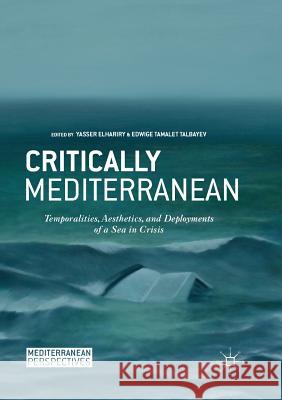Critically Mediterranean: Temporalities, Aesthetics, and Deployments of a Sea in Crisis » książka
topmenu
Critically Mediterranean: Temporalities, Aesthetics, and Deployments of a Sea in Crisis
ISBN-13: 9783030101077 / Angielski / Miękka / 2019 / 276 str.
Critically Mediterranean: Temporalities, Aesthetics, and Deployments of a Sea in Crisis
ISBN-13: 9783030101077 / Angielski / Miękka / 2019 / 276 str.
cena 481,91
(netto: 458,96 VAT: 5%)
Najniższa cena z 30 dni: 462,63
(netto: 458,96 VAT: 5%)
Najniższa cena z 30 dni: 462,63
Termin realizacji zamówienia:
ok. 22 dni roboczych
Dostawa w 2026 r.
ok. 22 dni roboczych
Dostawa w 2026 r.
Darmowa dostawa!
Kategorie BISAC:
Wydawca:
Palgrave MacMillan
Seria wydawnicza:
Język:
Angielski
ISBN-13:
9783030101077
Rok wydania:
2019
Wydanie:
Softcover Repri
Ilość stron:
276
Waga:
0.35 kg
Wymiary:
21.01 x 14.81 x 1.57
Oprawa:
Miękka
Wolumenów:
01
Dodatkowe informacje:
Wydanie ilustrowane











